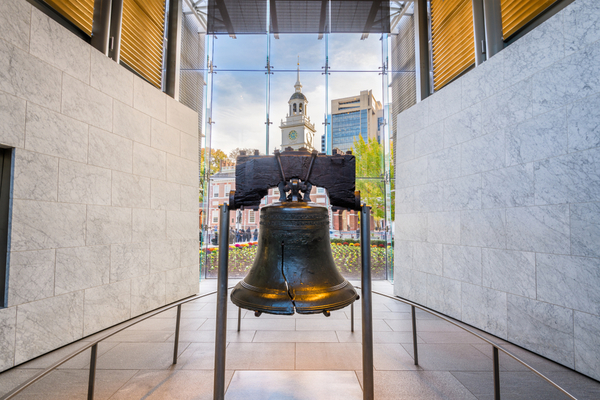The “runaway Convention” myth (the fear that an Article V Convention of States might “run away” and create an entirely new Constitution) is parroted often in the media. Much of the opposition to Convention of States is predicated on this fallacy. Critics claim that the Founding Fathers overstepped their commissions at the Constitutional Convention, and therefore, delegates could do the same at an Article V Convention.
One COS opponent, Robert Brown, for example, said: “if we look to the 1787 Convention where the Constitution was written, the states gave their delegates a number of rules to follow, and they didn’t follow them.” But, not only is Brown slandering the Founders, his claim is simply false.
In a recent article, Professor Rob Natelson, a former law professor, constitutional scholar, and the world’s foremost Article V expert, put this myth to rest once and for all.
“The charge that the Constitution’s framers exceeded their power is an old slander invented during the ratification debates by opponents of the Constitution,” wrote Natelson. “Modern scholarship has repeatedly shown it to be false: See here and here. Yet critics continue to repeat it, just as if it had never been rebutted.”
The professor and author of “The Law of Article V” then cites several historical sources, proving the Founders were, in fact, given the authority to write a new Constitution:
James Madison of Virginia, in Federalist No. 40, argued that the commissions issued by the states were the source of the delegates’ power—not a limiting resolution of the Confederation Congress. The commissions issued by all states except Massachusetts and New York granted authority to propose whatever was needed to render the political system “adequate for the exigencies of the union.”
- On June 16, 1787, according to Madison’s notes, James Wilson of Pennsylvania stated on the convention floor that “With regard to the power of the Convention, he conceived himself authorized to conclude nothing, but to be at liberty to propose any thing.”
- On Jan. 17, 1788, Charles Cotesworth Pinckney of South Carolina addressed the issue in his state’s legislature, saying:
“[I]t had been alledged, that when there they exceeded their powers, he thought not; they had a right, he apprehended, to propose any thing which they imagined would strengthen the union, and be for the advantage of our country; but they did not pretend to a right to determine finally upon any thing—the present constitution is but a proposition which the people may reject….”
- On July 24, 1788, William Davie of North Carolina addressed the “lack of authority” charge at the North Carolina ratification convention in this way:
“This objection has been industriously circulated, but I believe, on a candid examination, the prejudice on which this error is founded, will be done away. As I had the honour, Sir, to be a member of the Convention, it may be expected I would answer an objection personal in its nature, and which contains rather a reflection on our conduct, than an objection to the merits of the Constitution. After repeated and decisive proofs of the total inefficiency of our general government, the states deputed the Members of the Convention to revise and strengthen it: And permit me to call to your consideration, that whatever form of confederate government they might devise, or whatever powers they might propose to give this new government, no part of it was binding until the whole Constitution had received the solemn assent of the people. What was the object of our mission? ‘To decide upon the most effectual means of removing the defects of our federal union.’ This is a general, discretional authority to propose any alteration they thought proper or necessary.”
These are just a few of the many examples proving that the Founders did not overstep their bounds in creating the U.S. Constitution. They were expressly given that authority.
By contrast, delegates to an Article V Convention of States would not be given that authority. They would be bound and accountable to the states and limited to discussing amendments pertaining to term limits, fiscal restraints, and limitations on the federal government’s power. Any amendment that passed out of Convention must then be ratified by 38 states, making a “runaway Convention” impossible.
Thanks to Professor Natelson’s matchless research and the brilliance of our Founding Fathers, we can rest assured that an Article V Convention would be a safe, sure, and effective way to bring power back to We the People.


